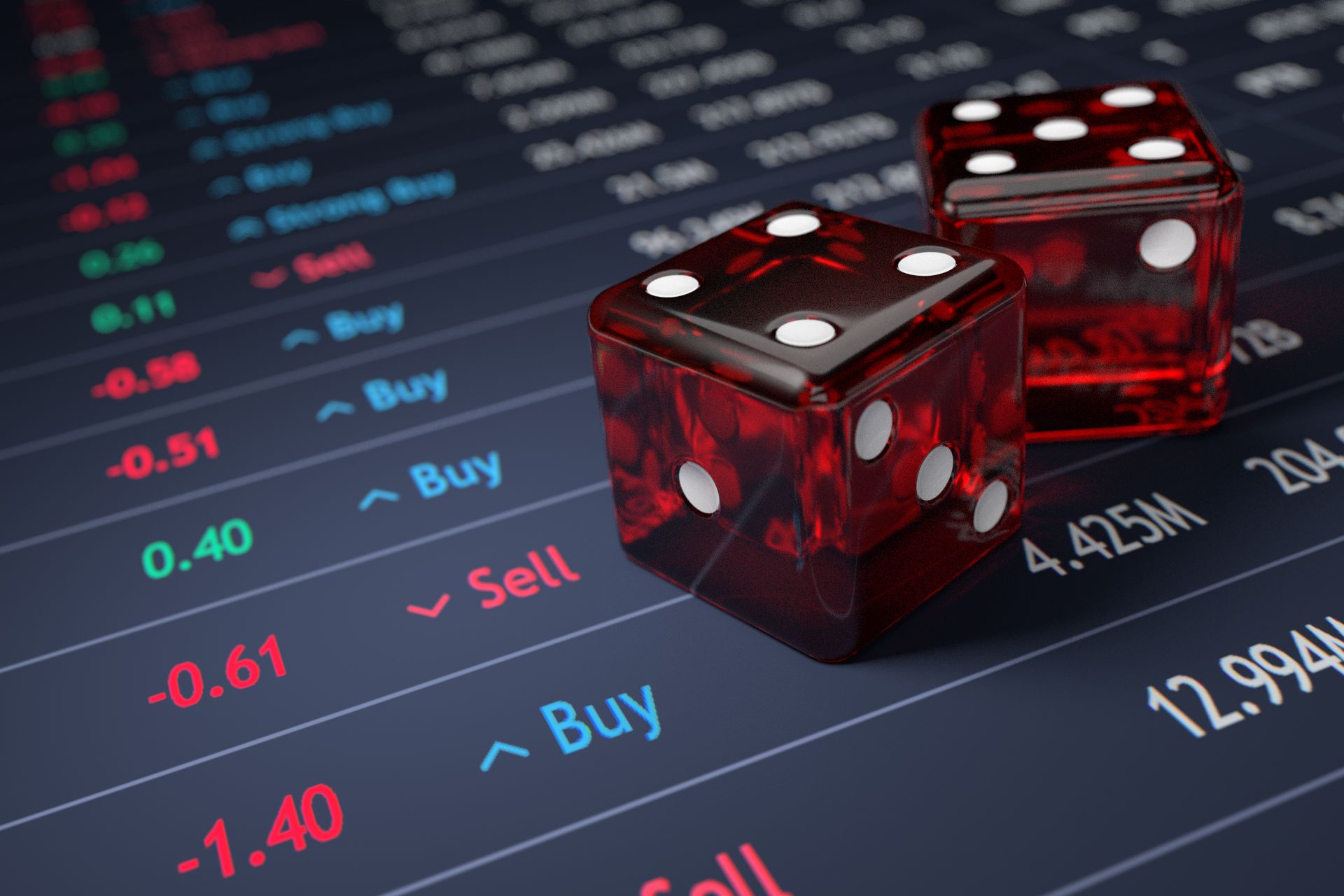This post is a short introduction on prediction markets and why they offer insight to society.
Prediction markets allow participants to buy shares of an event occurring or not, analogous to a bet or wager. For example, the U.K.-based website Betfair has political event markets. A "share" pays out if the election occurs as you predict and pays nothing if you predict incorrectly. A market is created by people buying and selling shares on the outcomes of the events. For example, last year you could buy a share of Joe Biden winning the presidential election which would pay out if he won, but be worth nothing if he lost. There are more complex types of prediction markets, but we'll stick to this binary "yes" or "no" type for now.
A prediction market's existence creates a publicly known "price" of the best estimate of whether an event will occur according to the market participants. If the price is incorrect, people are incentivized to take the other side of the bet (to buy the undervalued share). For most of last year, Joe Biden traded around odds of 1:1.6 which would mean a bet of a dollar would pay off $1.60 cents if he won (and nothing if he lost). You can translate this to probabilities by dividing 1/1.6 = ~60% chance to be president.
This is remarkably simple and yet incredibly powerful. Think about the amount of time, effort, resources, money, labor, algorithm design, etc that trading firms undertake in order to get an edge in financial trading. There are potentially billions of dollars on the line if you can correctly gather information to predict whether a stock or future will rise or fall in price. Prediction markets can harness these incentives to uncover truth not just about company financial data, but about anything we are curious about. They tie reality and truth about the world to financial incentives. They push us to discover information about what is happening and what will happen.
Unfortunately, they are also legally limited. Event based betting is largely banned in the United States (although a new startup, Kalshi is starting an exchange this year), even though political decision making is very high stakes. Our lives are worse of because of this! We should want our political decision-making processes scrutinized and better understood; prediction markets provide financial incentives to achieve those ends. Prediction markets could be providing us with real time information on whether Congress will pass legislation or how an administration will respond to crises.
Of course, the actual application of prediction markets could be much broader than politics. Imagine if we had an ongoing prediction market about possible pandemics on the horizon. That would have been very handy to refer to in January or February 2020 and may have alerted us sooner than simply relying on broad media reporting, which didn't pick up the potential danger of the pandemic until early March. Such a market may have also been helpful in reference to whether individual policies were beneficial.
Another interesting application is a nominal GDP futures market accompanying a policy of nominal GDP targeting. The Federal Reserve has long tried to target metrics for the economy, but their feedback mechanisms are limited. They can only get so much information by looking at equity markets (i.e. stock indexes) as stocks reflect company cash flows which may be disconnected from productivity. A nominal GDP futures market would provide direct feedback on expected productivity and inflation levels, which simple inflation targeting cannot (for more info on NGDP targeting see here). While it's true that GDP level targeting can be done without a prediction market, the benefits of a market mechanism is again, that financial incentives are harnessed to discover information and incorporate it into a constantly updated price that provides the best aggregation of knowledge that we have.
Building More Complexity
So far we've discussed how prediction markets could improve the world by providing incentives to discover and publish information about the state of reality and the future. But given this baseline of what prediction markets can accomplish, we can build more complex systems on top of them to gain even more interesting insights.
A conditional prediction market is a single trading market with two events allowing investors to trade on the relationship between two events. For example, you could make a prediction market for a company stock price conditional of whether they fire their CEO. The market could place bets on whether the stock price would improve by removing their CEO or not. The possibilities with conditional markets are exponentially larger, but also exponentially more interesting. Unlike simple binary prediction markets mentioned before, conditional markets could give direct feedback on what people believe about possible actions taken in the future.
Of course, with increased complexity, markets might need more software integrations to make sure everything works correctly. Looking at the CEO example:
| Stock Price Rises | Stock Price Drops | |
|---|---|---|
| CEO Fired | A | B |
| CEO not Fired | C | D |
We could allow market participants to simply purchase shares of one of the four possible outcomes. If you purchase share A, then if either the CEO is not fired or the stock drops, A-shares become worthless. However, we might also construct bundles of shares to be sold together. Suppose we think that outsiders don't know much about the internal politics of the company, so they aren't really sure what the odds are that the CEO will be fired. But they do know the CEO's performance so outsiders think they can predict what the stock will do if the CEO firing does occur. How could we make it easier for them to share this information?
We could bundle A-shares along with C and D-shares. Now in the case of the CEO not being fired, the buyer is covered regardless of stock performance. But in the specific case where the CEO is fired, the buyer is staking a specific position where the stock rises. Thus, the buyer can still participate in the market despite only wanting to take a position in a specific conditional circumstance. This approach will allow market participants who don't need to research every possible market outcome, and thus lowering the bar for entry of participants with information. In fact, if bettors are completely neutral on one of the questions, they can simply take a position like A + C, betting that in any case, the stock price will rise. This reverts back to a standard single event prediction market.
This isn't the only type of conditional prediction market that we could make. Another interesting idea is about economic indicators. The unemployment rate is a major driver of economic and political interest so making a prediction market about it seems pretty straightforward. But having an unemployment rate market conditional on certain policies being implemented could be fascinating. Predicting the unemployment market conditional on whether the a congressional bill is passed could give direct input on whether the market believed it would help.
There are also just broad challenging questions that prediction markets could provide incentives to answer. Metaculus is a website interested in asking these hard to answer questions. It gets around the regulatory ban on prediction markets by foregoing real money trading and instead simply gamifying predictions with imaginary internet points. Obviously this isn't ideal (no hedge fund is going to spend thousands of dollars researching a question on Metaculus for internet points), but it's better than nothing and gives us an insight into what we can really ask. For example, here is a question asking how much global warming we will see by the year 2100. Another asks if we will see human-AI parity by 2040. Metaculus is open-ended and anyone can submit questions, so there are all sorts of interesting ideas to pull from here.
Concerns
Markets sometimes have an image problem. The financial industry is largely unpopular, and short selling is seen as particularly bad. Expanding markets to include betting on unemployment figures, as an example, would mean participants could directly profit from economic downturns. Of course, in some ways this is already possible, but prediction markets may have a PR problem if they are seen as simply another way for Wall Street to make money off of misery.
Of course, on the object level, I should state emphatically that a prediction market simply reflects the traders' collective best guess as to what will happen in the real world. It's not really possible for people betting on what unemployment will be next March to actually affect the outcome. All it can do is provide information, information which is otherwise extremely hard to get. Moreover, short selling, as we've seen in the past months, is only profitable if the market agrees that the underlying asset is actually undervalued. Otherwise, it can lead to some hefty losses.
Nonetheless, perceptions matter. It might make sense for initial prediction markets to be more technocratic and dry, like the NGDP futures market discussed above. A mechanism for betting on the results of the interplay between economic productivity numbers, inflation, and the federal funds rate is pretty abstract, yet its assistance is creating macroeconomic stability policy could be quite beneficial.
Our world is filled with uncertainty and polarization. But specific predictions about concrete events can help ground our disagreements. Prediction markets are the ultimate way to incentivize truth-finding. In any other industry or policy space, we agree that material investment is the only way to get results. The same applies to information about the future.
Here are some links to learn more. I also plan to keep exploring this area in future posts:
- Bitcoin developer Paul Sztorc's discussion of complex prediction markets
- Prediction Markets: When Do They Work? by Zvi at LessWrong
- Gwern's Prediction Market page
Picture credit: Advantus Media Inc. and QuoteInspector.com licensed under CC BY-ND 4.0

